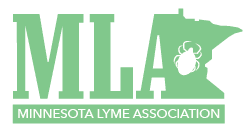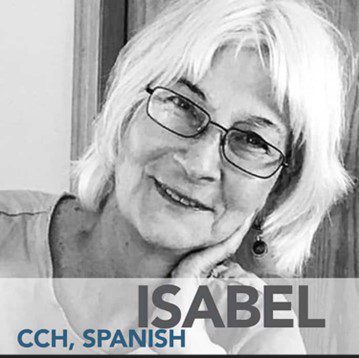Summary
The Minnesota Lyme Association hosted a free Friday session focused on internal family systems and the benefits of parts work for managing health conditions and behavioral issues. The session was led by Dr. Karen Bakoda and Jane Rosen, who discussed the concept of ‘parts’ within individuals, the process of ‘unblending’, and the role of protective systems. The discussion centered around addiction and coping mechanisms, with a focus on understanding and managing polarized parts within individuals. The session concluded with Jane outlining the goal of helping different parts in the system to get to know each other and appreciate each other’s roles and contributions.
Parts, Unblending, and Self-Discovery
Jane and Karen talked about the concept of ‘parts’ within individuals, namely different personality traits or tendencies. Jane elaborated on the process of ‘unblending’, which involves understanding these parts and can lead to personal growth and healing. They also touched upon the role of protectors, which guard the wounded parts of individuals. The discussion further involved a guided meditation led by Jane and a discussion centered around self-discovery. Jane instructed participants to draw a triangle and write ‘self’ in the center, reflecting on their characteristics. She emphasized the importance of curiosity and compassion in personal growth.
Emotional Wounds and Protective Systems
Jane discussed the concept of emotional wounds and how they manifest in different parts of our psyche. She highlighted the role of protective systems, which can take the form of managers, caretakers, strives, and inner critics, among others. Jane explained that these parts, while formed to protect us, can sometimes turn harmful or extreme in their roles. She also identified reactive protectors such as firefighters, dissociation, drugs, alcohol, and compulsive behaviors, which can be addictive and harmful. Jane emphasized the importance of transforming these protective parts into more supportive roles.
Addiction and Coping Mechanisms
The meeting revolved around the topic of addiction and coping mechanisms, with a focus on understanding and managing polarized parts within individuals. Jane and others shared personal experiences and insights about how they use food, work, and other behaviors to cope with emotions or situations. The concept of having different ‘parts’ within oneself, such as a controlling or indulgent part, was introduced and discussed. The group also touched on the struggle of being aware of better choices but still falling into old patterns, and the importance of recognizing and understanding these internal dynamics.
Parts Work: Understanding and Managing Different Aspects of Oneself
Jane discussed the concept of “parts work”, a therapeutic technique used to manage and understand different aspects of oneself, referred to as ‘parts’. She explained that these parts can take on extreme roles which can lead to problems. The process involves unblending from these parts, with various techniques such as visualization, voice hearing, feeling, or physical sensation. Jane emphasized that while visualization might not work for everyone, there are other ways to perceive the part. She also highlighted the importance of allowing the ‘self’ to take the driver’s seat while other parts take the backseat, and the potential for parts to have valuable skills or talents. The discussion concluded with Jane outlining the goal of helping different parts in the system to get to know each other and appreciate each other’s roles and contributions.
Exploring Parts of the Self
Jane discussed the concept of parts within a person, representing different emotions, feelings, and intentions. She suggested that getting to know these parts, understanding their roles and emotions, and expressing appreciation for their intentions can foster a positive relationship. The discussion also touched on examples of polarized parts, such as a taskmaster and a procrastinator, and how these parts can be viewed as having good intentions despite their seemingly negative actions. Julie-Mpls shared her struggle with feeling a lack of implementation skills and how this might be linked to past life disruptions. Jane guided her to explore this part and reassured her there was no need to rush the process.
Overcoming Limitations: A Discussion on Chronic Illnesses
The meeting revolved around the challenges individuals face in accomplishing tasks due to physical and mental limitations, such as chronic illnesses like Lyme disease and chronic fatigue. Jane suggested the use of journaling and understanding oneself to handle these limitations. Britt emphasized the need for self-compassion and flexibility, accepting that not every day will be productive. Gail, a caregiver, shared her struggles in helping someone with Lyme disease. Jane also led a discussion on procrastination, suggesting that it can be seen as a caretaker trying to protect the individual.
Exploring Tiffany’s Procrastinator Part
Jane and Tiffany engaged in a discussion about Tiffany’s feelings of procrastination and exhaustion. They identified these feelings as being associated with a ‘procrastinator part’ or ‘dust devil’ within Tiffany, which was perceived as a dark, energy-draining force that protected her from overexertion and burnout. This part was also associated with feelings of suffocation and pressure around Tiffany’s heart and stomach. The conversation concluded with the recognition of another part of Tiffany, characterized by annoyance towards the ‘dust devil’, and a decision to explore this part further in future discussions.
Emotional Burdens Management and Release
Jane and Tiffany engaged in a discussion about managing and releasing emotional burdens. Tiffany shared her personal experience of dealing with exhaustion and the associated beliefs she carried. Jane guided Tiffany through a process of acknowledging and releasing these burdens, which involved visualization and communication with different parts of herself. The group provided feedback and expressed appreciation for Tiffany’s vulnerability and bravery. Jane also shared resources for further exploration of this work on her website.







